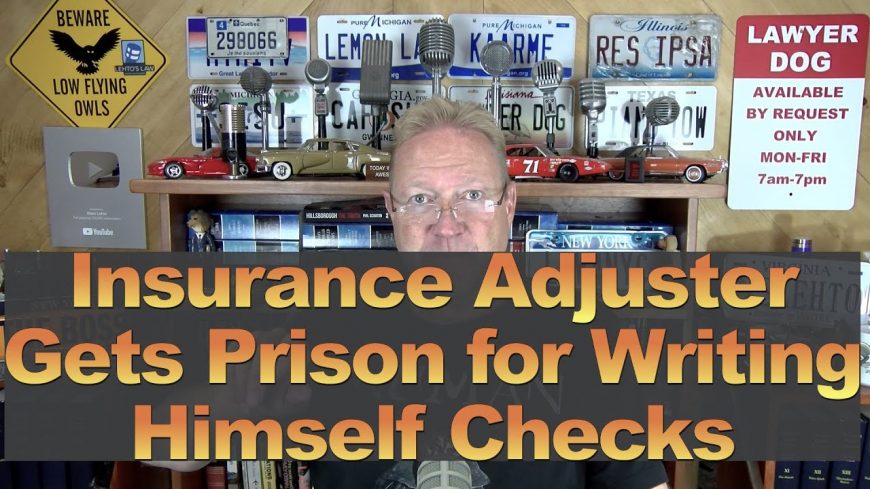Insurance Adjuster Gets Prison for Writing Himself Checks

Sometimes, we can’t help but wonder how far individuals might go if they channel their considerable efforts toward doing good instead of engaging in criminal activities. Some crimes require extensive planning, effort, and time investment, and it’s intriguing to think about the potential success that could be achieved by redirecting that energy toward more legitimate endeavors.
The tale we delve into this time revolves around an insurance adjuster hailing from Raleigh, North Carolina, who had a promising career in a major insurance company from 2015 to 2019. As anyone familiar with insurance adjusters knows, they’re not typically in the business of giving away money. However, this particular adjuster found himself sentenced to more than a year in prison for a staggering offense – distributing over $850,000, not to policyholders but to himself.
The plot twist in this narrative is that the adjuster orchestrated a scheme where he funneled funds into another business venture. He allegedly issued fraudulent payments to the business to benefit himself, disguising these transactions as payments to a fictitious cleaning company. The audacity of his actions is striking as he authorized and issued at least 68 fraudulent checks, even going as far as fabricating receipts and documents to make the entire operation appear legitimate.
Upon thorough investigation, it was revealed that the so-called cleaning company, enlisted to aid in insurance cases, was, in fact, channeling the money to a Powersports company owned by the adjuster himself.
In the video below, YouTube lawyer Steve Lehto offers his perspective on this intriguing case. He highlights the fact that this individual, upon getting caught, dug himself even deeper into trouble by creating false documents during the investigation. This underlines an essential legal point – attempting to cover up or complicate one’s misdeeds during an investigation can lead to more severe consequences than the initial crime that triggered the inquiry.

